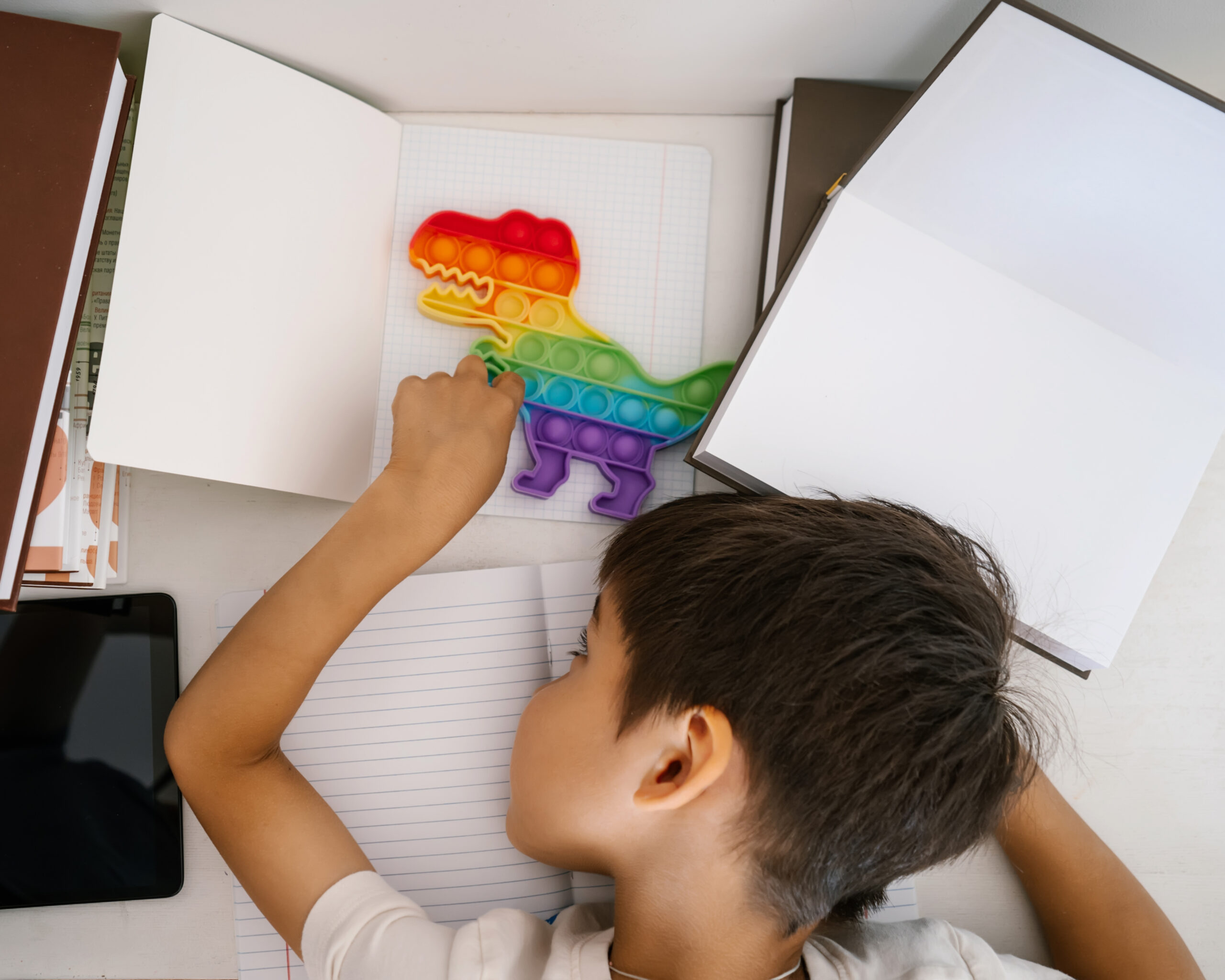Sleep should be simple but for children with Autism Spectrum Disorder, it rarely is. While many parents worry about communication delays or behavioral outbursts, they often find themselves equally stressed about something more basic: their child’s ability to sleep through the night.
If you’re a parent who’s struggling to understand why bedtime is a daily battle, know this you’re not alone. Sleep disturbances are one of the most common yet overlooked challenges in children with autism. At Samvedan, Dr. Purva Shah and her team have seen firsthand how addressing sleep can unlock better progress across therapies and learning.
In this article, we’ll explore the underlying causes of sleep issues in children with autism, how they affect Autism developmental delays, and practical strategies to help your child rest and grow better.
Why Do Children with Autism Struggle with Sleep?
Research shows that between 40% to 80% of children with Autism Spectrum Disorder experience sleep difficulties. That’s not a small number. And it’s not because they’re “just being difficult.” The reasons go deeper.
1. Melatonin Imbalance and Brain Chemistry
Children on the spectrum often produce melatonin the sleep hormone at irregular times. This misalignment can make it hard for their bodies to recognize when it’s time to wind down, leading to delayed sleep onset or frequent night wakings.
2. Sensory Processing Sensitivities
Imagine trying to fall asleep in a room that’s too loud, too bright, or where the bedsheets feel uncomfortable. That’s the reality for many autistic children who are highly sensitive to sound, texture, and light. Even subtle disturbances that others might ignore can overwhelm them and interfere with sleep.
3. Rigid Routines and Anxiety
For children with Autism Spectrum Disorder, structure isn’t just comforting it’s necessary. A slight deviation from the usual bedtime process, like skipping a story or a delayed dinner, can trigger anxiety. And anxiety is a well-known sleep disruptor.
4. Unexpressed Discomfort
They might be hungry, too warm, or anxious, but unable to express it. This can lead to restless behavior or late-night wakefulness that may seem puzzling to parents.
How Poor Sleep Impacts Autism Treatment
Sleep is more than just rest it’s the brain’s time to recover, organize information, and recharge. When a child doesn’t get enough sleep, the effects show up fast:
-
Difficulty paying attention
-
Increased irritability or aggression
-
Regression in language skills
-
Heightened sensory issues
-
More severe repetitive behaviors
This can directly affect the success of any Autism treatment your child may be undergoing. At Samvedan, Dr. Purva Shah emphasizes that children who sleep well are often more focused, responsive, and emotionally regulated during therapy.
Common Sleep Problems in Children with Autism
Every child is different, but common sleep issues include:
-
Trouble falling asleep (insomnia)
-
Waking up multiple times during the night
-
Waking up too early
-
Irregular sleep-wake patterns
-
Short total sleep duration
Some children may appear tired all day, while others seem hyperactive due to poor-quality rest. The signs aren’t always obvious but the impact is real.
Real Solutions: What You Can Do
Helping your child sleep better is possible and it often starts at home. Here’s what Dr. Purva Shah recommends as part of a comprehensive sleep support plan at Samvedan:
1. Stick to a Consistent Routine
Children with Autism Spectrum Disorder thrive on predictability. Start winding down at the same time every night with a structured routine. Use visuals or charts to help your child understand the sequence.
2. Make the Sleep Environment Autism-Friendly
Some children need total darkness. Others feel safer with a dim light. Try to:
-
Use blackout curtains
-
Remove stimulating electronics
-
Add soft bedding with preferred textures
-
Use white noise or calming nature sounds
-
Keep the room temperature cool and consistent
The goal is to reduce sensory input that could disturb your child’s comfort.
3. Use Natural Light to Set the Clock
Our bodies rely on light to regulate sleep cycles. Get your child outside in the morning to help balance melatonin levels naturally. In the evening, dim the lights at least an hour before bedtime.
4. Melatonin Supplements (With Care)
Some children benefit from melatonin supplements, especially if there’s a documented hormone imbalance. However, Dr. Purva Shah strongly advises that this should only be done under medical supervision. Self-prescribing melatonin can lead to dependency or other health issues.
5. Behavioral Therapies Can Help
Sleep training for children with autism may involve behavioral interventions like CBT-I (Cognitive Behavioral Therapy for Insomnia). These methods are tailored at Samvedan to fit a child’s developmental level and sensory profile, with an emphasis on reducing bedtime anxiety and promoting self-soothing.
When to See a Specialist
If your child’s sleep issues persist for more than a month, or they begin to affect their behavior, learning, or family life, it’s time to seek expert help. Sleep disorders can sometimes be linked to other conditions such as gastrointestinal discomfort, seizures, or even side effects of medications.
At Samvedan, a multidisciplinary team led by Dr. Purva Shah looks at the child holistically evaluating neurological health, sensory profile, family routines, and emotional needs before developing a tailored Autism treatment plan.
A Parent’s Role: Trust Your Instincts
No one knows your child better than you. Document sleep patterns, behaviors, and any triggers you notice. This information is invaluable when working with specialists to craft an individualized plan.
One parent shared that simply changing the texture of their child’s blanket and adjusting the nightlight helped reduce bedtime meltdowns. Small changes can have big effects when they’re tailored to your child’s unique needs.







